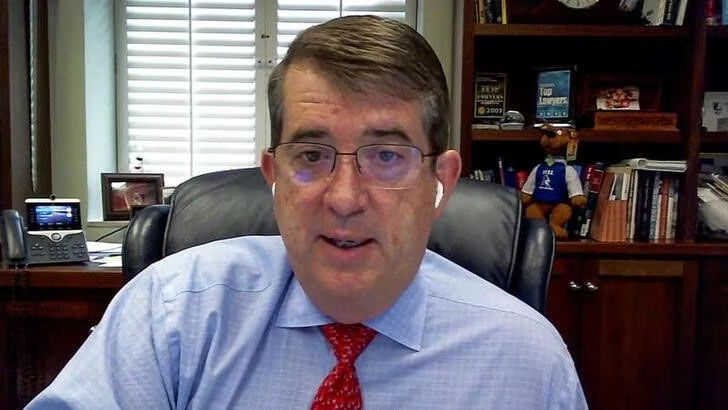US: Bankruptcy judge's sudden resignation causes 3,500 cases to be reassigned
Jones resigned Sunday, days after a federal appeals court opened an ethics probe into his failure to disclose a long-term romantic relationship with an attorney whose firm had many cases before his court.

A federal court in southern Texas quickly moved to reassign about 3,500 bankruptcy cases after the sudden resignation of U.S. Bankruptcy Judge David Jones in Houston, transferring his large-company Chapter 11 cases to two judges who are already among the busiest in the U.S.
Jones resigned Sunday, days after a federal appeals court opened an ethics probe into his failure to disclose a long-term romantic relationship with an attorney whose firm had many cases before his court.
Replacing Jones, the busiest bankruptcy judge in the U.S., is an enormous lift for a Houston bankruptcy court that is one of the top three destinations for big corporate debtors' Chapter 11 filings in the U.S., along with Wilmington, Delaware and Manhattan.
In recent years, Jones has managed the bankruptcies of high-profile retailers like JC Penney and Nieman Marcus and complex debt disputes in mattress maker Serta Simmons' and aircraft part supplier Incora's Chapter 11s.
"Judge Jones was highly regarded and highly respected by the bar and by his colleagues," Chief U.S. Judge Randy Crane in the Southern District of Texas told Reuters. "Everybody's still in shock, so to speak."
Jones has handled more corporate bankruptcies in recent years than any other U.S. bankruptcy judge. He has overseen 17% of cases with more than $1 billion in liabilities since 2020, according to data from Debtwire, which provides research and intelligence on credit markets.
The next most-active judge, Jones' Houston colleague Marvin Isgur, has overseen 14% of $1 billion-dollar Chapter 11 filings since 2020, while Houston Judge Christopher Lopez has overseen 3%, according to Debtwire.
Isgur and Lopez will divide Jones' large-company case load between them, while also accepting all new large Chapter 11 cases filed in Houston. Isgur will take on cases including Instant Pot-maker Instant Brands, retailer Party City and Incora, while Lopez's new cases include Orbital Infrastructure Group, the Center for Autism and Related Disorders and bitcoin miner Core Scientific.
Crane said the court was reassigning a total of about 3,500 cases from Jones, mostly smaller individual debtors cases. But Jones also oversaw an unusually high number of large-company cases, and Jones said at an Oct. 13 court hearing that he had more than 1,100 commercial cases on his docket.
"At the very least it will be very chaotic," said Nancy Rapoport, a professor at the William S. Boyd School of Law at the University of Nevada, Las Vegas. "It's a massive workload for people who are already very busy."
Jones' resignation could also create more work in cases that were argued before Jones but not decided, or in cases where participants object to past rulings based on the judge's undisclosed relationship.
Jones acknowledged last week he has been in a years-long romantic relationship and shared a home with bankruptcy attorney Elizabeth Freeman. Freeman, who had previously clerked for Jones, had been a partner at Jackson Walker, a law firm that represented many debtors in Jones' court until December 2022. Concerns about Jones' potential bias towards Freeman and Jackson Walker have been raised in at least two cases so far.
Jones could not be reached for comment Wednesday.
Jackson Walker said it consulted with outside ethics experts after learning about the relationship between Jones and Freeman, and it instructed Freeman not to work or bill on any cases before Jones.
COMPLEX CASES
The Houston judges oversee so many high-profile cases in part because of local court rules directing all "complex" Chapter 11 cases, involving more than $200 million in debts, to just two judges, making it an outlier among U.S. bankruptcy courts.
Cliff White, an attorney who previously managed the U.S. Department of Justice’s bankruptcy watchdog, the Office of the US Trustee, said he hopes that the scrutiny will cause Houston to end its practice of directing all large cases to just two judges.
"The only reason we're in this situation is because we had a two-judge panel that aggregated too much power in the hands of too few people," White said.
Two-judge panels like the one in Houston invite companies to "forum shop" their bankruptcy cases, in the hopes of being assigned to a judge who will predictably rule their way on relevant legal issues, White said.
Two other courts, in White Plains, New York, and Richmond, Virginia, had similar rules directing large cases to just one or two judges until 2021, when they reverted to the more common practice of assigning cases randomly to all the bankruptcy judges in the district.
Both courts drew scrutiny from appeals courts over decisions that wiped away lawsuits against non-bankrupt parties involved in the high-profile bankruptcies of Purdue Pharma and Ann Taylor. The Purdue case led to calls from Congress to reform case assignment rules.
A perception that companies can "pick their judge" and get favorable rulings undermines public confidence in the U.S. bankruptcy system, White said.
But Crane said the court's complex case rules allow for the efficient handling of difficult cases. Jones' departure will not end Houston's popularity as a venue for large bankruptcies, as Isgur's long experience makes him a good replacement for Jones, the chief judge said.
Isgur, who Jones has described as a personal mentor, became a bankruptcy judge in 2004 and has served on the two-judge panel for many years. Isgur stepped back from the complex case panel at the start of 2023 as part of a long-planned rotation that saw Lopez step up into the role.
Crane described Isgur as a "very bright individual."
"Putting him back in, I don't see that there's going to be really any effects long-term on where people choose to bring their bankruptcies," Crane said. "Our efficiency rules are still there and very attractive to litigants."


